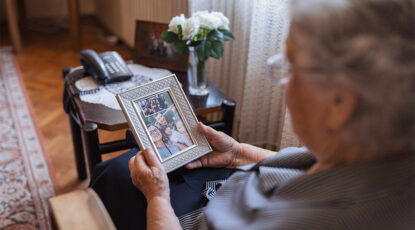-
Dementia’s devastating financial and family impact
People diagnosed with dementia saw their out-of-pocket spending for health care more than double, and their net worth decline by more than 60 percent, within the first eight years of being diagnosed, according to U-M researchers. Peers without dementia didn’t see much change in either financial measure in that time.
-
New $81M NIH grant will help US answer urgent need for better dementia care
National Dementia Workforce Study will survey those who work in homes, hospitals, clinics, assisted living facilities, and nursing homes, yielding data to improve care and inform policy.
-
Wildfires, farming activities may be top sources of air pollution linked to increased risk of dementia
No amount of air pollution is good for the brain, but wildfires and the emissions resulting from agriculture and farming in particular may pose especially toxic threats to cognitive health, according to U-M researchers in the School of Public Health. Given that the development of dementia could take a long time, researchers hope to provide evidence for policymakers to reduce exposures such emissions.
-
Dementia becomes an emergency 1.4 million times a year
Accidents and behavioral disturbances lead the list of reasons for ER visits. And with about 6 million Americans currently estimated to have dementia, there’s a lot of opportunity to prevent future emergency visits by better supporting dementia caregivers, say U-M researchers.
-
Move along, dementia
Hoping to ward off dementia or Alzheimer’s Disease? Get moving if you can, suggests Vic Katch.
-
1 in 10 older Americans has dementia
A new study aims to give more precise prevalence estimates for both dementia and mild cognitive impairment. It is the first nationally representative study of cognitive impairment in more than 20 years.
-
Depression among those caring for partners with dementia can start a decade before dementia diagnosis
New study finds that dementia’s pre-onset period, which may include mild cognitive impairment, is an important time to identify needs and solutions for families that will go on to live with the condition.
-
Connecting generations, U-M students fight loneliness, establish strong ties
Every Tuesday, no matter what is happening that day, University of Michigan student Madison Ebstein has a date with 74 year-old Adeline, who lives in a memory care facility in Ann Arbor.
-
Living in the moment
U-M art professor Anne Mondro and her students explore the creative process with the elderly to shatter the stigma that comes with memory loss, dementia.










